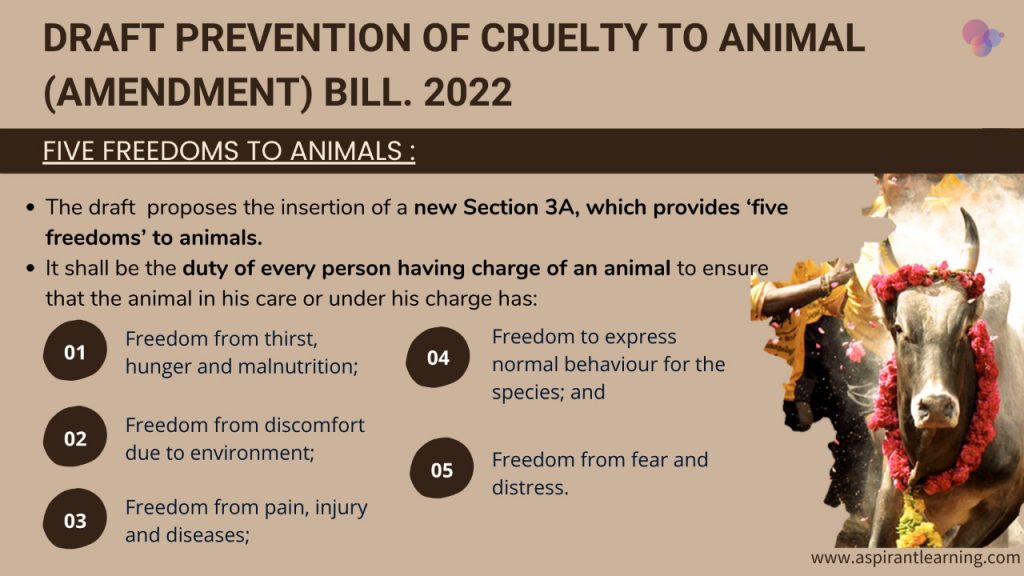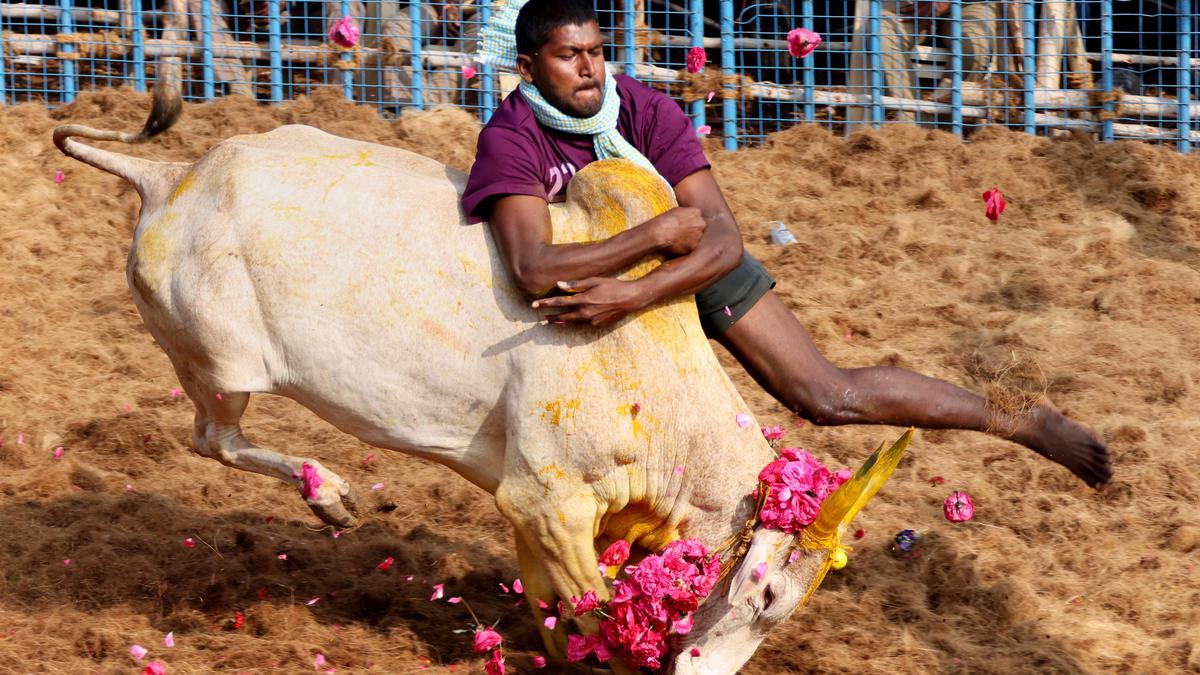News Highlight
Preventing Animal Cruelty:a way to approach the jallikattu dispute is to see it in the context of our right to live in a world that treats animals with equal concern.
Key Takeaway
- Soon, a Constitution Bench of the Supreme Court of India will deliver its verdict on the validity of Tamil Nadu’s law permitting the practice of jallikattu in the State.
- Usually held during the Pongal season, jallikattu is a sport where men compete against each other to hold on to the humps of agitated bulls released into an open arena.
- In 2014, in Animal Welfare Board of India v. A. Nagaraja, a two-judge Bench of the Supreme Court declared jallikattu illegitimate.
- The court found that the practice was cruel and caused the animal unnecessary pain and suffering.
- Since then, Tamil Nadu has tried to resurrect the sport’s legality. It is that act of revival which is now at stake.
Prevention of Cruelty to Animals Act, 1960
- About
- “Prevent the inflicting of undue pain or suffering on animals,” according to the statement.
- Under Section 4 of the Act, the Animal Welfare Board of India (AWBI) was created in 1962.
- Additionally, the penalties for animal cruelty and undue suffering are outlined in this Act.
- The Act defines animals and their various varieties.
- Furthermore, it outlines the regulations for using animals in scientific experimentation.
Prevention of Cruelty to Animals (Care and Maintenance of Case Property Animals) Rules, 2017
- About
- Framed under the Prevention of Cruelty to Animals Act, 1960.
- The Rules allow a Magistrate to forfeit the cattle of an owner facing trial under the Act.
- The animals are then sent to infirmaries, animal shelters, etc.
- The authorities can further give such animals for “adoption”.

The necessity of preserving harmony between human rights and animal welfare
- To Address the Fundamental Issue
- The rights of wild animals in a society where humans predominate in general and within the parameters of the Indian Constitution, in particular, are raised even more by this issue.
- Animal Punishment is Wrong
- Some ancient societies used to punish animals for wrongs they had committed.
- But as the debate over moral agency developed, it became clear that punishing animals was wrong.
- Furthermore, they lacked the mental capacity to discriminate between good and evil; punishment would be useless.
Judicial Interventions for the protection of animals: Important Case Laws
- Animal Welfare Board of India v. Nagaraja (2014)
- While outlawing the practices of bullock cart racing and jallikattu(bull-wrestling) in the Indian states of Tamil Nadu and Maharashtra, respectively.
- The Supreme Court had declared that animals also have the right to dignity and fair treatment guaranteed by and stems from Article 21 of the Indian Constitution.
- Other Judgements
- Observing that animals have a distinct legal persona with corresponding rights, obligations, and liabilities of a living person, the Uttarakhand High Court in July 2018.
- Judge Rajiv Sharma of the Punjab and Haryana High Court, in June 2019, declared all citizens to be persons in loco parentis as the human face for the welfare and protection of animals.
Constitutional Protection for Animal Rights
- Everybody has a duty to protect and maintain the nation’s natural resources, including its forests, lakes, rivers, and animals, according to the Indian Constitution.
- The DPSP and Fundamental Duties contain many of these requirements, but they can only be implemented with statutory support.
- According to Article 48 A, the State must work to preserve the nation’s forests, wildlife, and environment.
- Every Indian citizen is responsible for “guarding and improving the natural environment, including forests, lakes, rivers, and animals, and to have compassion for living creatures,” according to Article 51A(g).
- Additionally, the State and Concurrent List have been given animal rights items.
- Under State List Item 14, the States are granted the power to “preserve, maintain, and improve stock and prevent animal diseases and enforce veterinary training and practise.”
Way Forward
- The rise in animal cruelty charges highlights how callous and brutal people can be.
- It is time for us to realise that the word connects many common societies, including animals.
- Humans wouldn’t be here if they didn’t exist.
- We must thus educate those who intentionally harm animals in light of the significant role that animals play in our lives.
- The current situation calls for the proper application of the law and for cultivating compassion within each individual.
Pic Courtesy: The Hindu
Content Source: The Hindu



